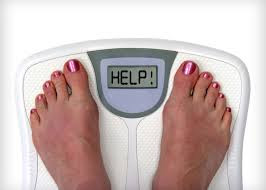You may have been aware of the fact that being underweight and overweight are two common causes of serious health problems. But, do you know the difference between them?
Do you know how much weight is healthy and what your body weight should be according to your age, sex, height, build and activity level?
If not, then keep reading this article to know all about it. We will discuss all these here in detail so that you don’t end up confused later on. Read on to know more about your body.
Underweight
Underweight is a condition in which the person has a low body weight compared to the ideal weight. An underweight person is not just skinny but also has low muscle mass and low bone density.
A person with low muscle mass is more likely to have low energy levels, low immunity, low concentration and low muscle strength. A person underweight is also prone to various other health problems including a low iron level, low calcium level and reduced growth.
Women who are underweight during pregnancy also have a low birth
weight. The severity of these health problems depends on the extent of being underweight and the person can get over it with the help of diet and exercise.
Related article: How to gain weight
Overweight
Overweight is a condition in which the person has a higher than ideal weight. A person with excess weight is likely to experience several health problems including high blood pressure, high blood sugar, high cholesterol, inflammation and a high risk of heart disease.
A person can be overweight due to various reasons like poor eating habits, poor fitness, obesity due to genetic reasons, medical conditions etc.
The most efficient way to keep a check on your weight is to track your daily calories. You can use an app to do that. You can also estimate your daily calories using an online calculator.
You can find out the daily calorie requirement by calculating your age, sex, height and weight. To lose weight, you need to burn more calories than you consume.
You lose weight when your body is in a state of caloric deficit. The caloric deficit occurs when you burn more calories than the amount that is consumed.
Being overweight or obese can be caused by an imbalance
between the intake and the expenditure of calories. If the balance is tipped
towards too many calories, the result is obesity. If the balance tips towards
too few calories, the result is underweight.
Related article: How to lose weight
Difference between underweight and overweight
- Underweight: Underweight is a condition when an individual has a low body weight, irrespective of their age, sex, height and muscle mass.
A person can be underweight due to various reasons like eating habits, insufficient intake of food, poor fitness, medical conditions etc.
- Overweight: Overweight is a condition when an individual has high body weight, irrespective of their age, sex, height and muscle mass.
A person can be overweight due to various reasons like a poor fitness regime, a high caloric intake, genetic factors, medical conditions etc.
Know Your BMI
Your body mass index (BMI) is calculated by your age, sex, height and weight. BMI is an indication of your body fat.
A healthy person should have a BMI of between 18.5 and 25.
The lower the number, the more underweight the person is and the higher the number, the more overweight the person is. There is a difference between being underweight and being overweight.
Being underweight means that you have a low muscle mass and your bones are likely to be weak.
Being overweight means that you have high muscle mass and a high risk of certain health problems. The ideal BMI varies according to your age, sex and height.
Tip for maintaining ideal weight
Be realistic with your goals - keep a realistic goal in mind
and don’t set a goal you are not likely to achieve. You should also keep
in mind that everyone is unique and will react differently to different goals.
Don’t skip meals -
this is another important factor that you need to follow if you want to lose
weight.
Make sure that you drink enough fluids - for instance, you
can drink water, herbal teas and fruit juices.
Breakfast - this is the most important meal of the day and
should not be skipped. You should consume a hearty breakfast with a balanced
amount of proteins, fats and carbohydrates.
Eat a healthy lunch -
this should also be a balanced meal that has proteins, fats and carbohydrates.
Make sure that you don’t skip lunch as it is equally important as breakfast.
Make sure that you
don’t consume a heavy dinner - make sure that you avoid eating a heavy dinner
as it will only increase your weight. It is recommended that you consume a
light dinner with a balanced amount of proteins, fats and carbohydrates.
Keep a diary - this
is also a good way to keep a check on your weight as you can evaluate your
eating habits.
Make use of the gym -
this is another way to burn off the calories that you consume without any
difficulty. You can also make use of an app to track your calories.
Keep yourself busy - this is also an excellent way to keep your
mind away from food and it will help to reduce your appetite.
Conclusion
BMI is unquestionably not a perfect indicator of health when used alone. However, it's still a good place to start for serious conditions that are made more probable by being overweight or obese.
I think it's an
excellent idea to be conscious of your BMI. But it's equally critical to be
aware of its shortcomings.
Special Note
This guide is a one-size-fits-all solution.








So informative
ReplyDeletePerfectly described👍
ReplyDelete